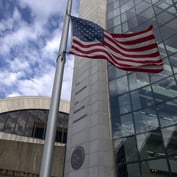GREENWICH, Conn. (HedgeWorld.com)–Research Research by Greenwich Associates, Inc. shows that institutional investors have reduced their use of soft-dollar commissions to purchase third-party research and services over the last year as the investors await the outcome of deliberations within the Securities and Exchange Commission.
In the first quarter of 2005, institutions used an estimated US$1.13 billion of “soft” money for such purposes, down from US$1.25 billion in the first quarter 2004, roughly a 10% decline.
“U.S. institutions are clearly adopting a more conservative approach” to this issue, says Greenwich Associates consultant Jay Bennett, in the report. He also noted that the SEC’s review “has taken longer than many investors had anticipated.”
The report was based on interviews with decision makers in 400 U.S. institutions investing in U.S. equities. It finds that although these institutions have cut back their use of soft dollars, they haven’t cut back as severely as they thought they would a year ago.
With regard to hedge funds specifically, the report finds that only about 55% now acknowledge using soft dollars – that number was 90% two years ago. But the report also reminds its readers that statements from such institutions about the non-use of soft dollars have to be “parsed carefully,” since the phrase means different things to different decision makers.








 June 27, 2005 at 08:00 PM
June 27, 2005 at 08:00 PM










